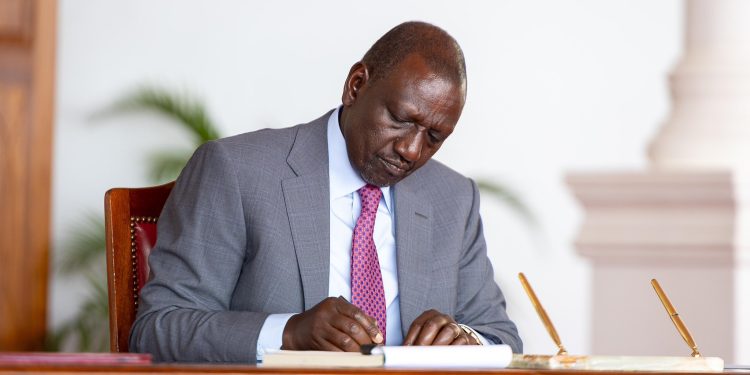The Communication Authority of Kenya (CA) has started a crackdown on social media users hours after President William Ruto approved the Computer Misuse and Cybercrimes (Amendment) Bill, 2024.
As of October 16, CA began reporting and monitoring online accounts with social media users sharing screenshots of emails from tech giant X.
“In the interest of transparency, we are writing to inform you that X has received a request from the Communications Authority (CA) of Kenya regarding your X account, [redacted], that claims the following content violates the LAW OF Kenya,” read the email screenshot seen by The Kenya Times.
“We have not taken any action on the reported content at this time as a result of this request,” it added.
The email asked the user to evaluate the request and take appropriate action, including:
- Seeking legal counsel and challenging the request in court
- Contacting relevant civil society organisations
- Voluntarily deleting the content (if applicable)
- Finding some other resolution
“We understand that receiving this type of notice can be an unsettling experience. While X cannot provide legal advice, we want you to have an opportunity to evaluate the request and, if you wish, take appropriate action to protect your interests.”
The new law expands definitions of cybercrime, introduces stricter penalties, and grants authorities’ broader powers to regulate and monitor online activities.
These powers include blocking websites, ordering content takedowns, and compelling service providers to hand over user data without judicial oversight by CA.
Also Read: Details of Proposed Law Giving Govt Power to Shut Down Social Media Accounts
The law also criminalizes unauthorized SIM swaps and broadens the definitions of cyber harassment, carrying heavy fines and imprisonment.
Ruto Assents to Eight Bills Passed by National Assembly
President William Ruto on Monday assented to eight Bills passed by the National Assembly into law during a ceremony at State House, Nairobi.
The newly signed laws include the National Land Commission (Amendment) Bill, 2023, Land (Amendment) Bill, 2024, Wildlife Conservation and Management (Amendment) Bill, 2023, and the Computer Misuse and Cybercrimes (Amendment) Bill, 2024.
Others are the National Police Service Commission (Amendment) Bill, 2024, Air Passenger Service Charge (Amendment) Bill, 2025, Virtual Asset Service Providers Bill, 2025, and the Privatisation Bill, 2025.
“With my assent, these laws now become part of the Statutes of the Republic of Kenya, reinforcing our collective commitment to address historical injustices, entrench equity and transparency, and accelerate our national development and transformation agenda,” said President Ruto.
This amendment, sponsored by Wajir East MP Aden Daudi Mohamed.
About the Computer Misuse and Cybercrimes (Amendment) Bill, 2024
Also Read: Lawyers Reject Push to Give Ruto More Appointing Powers
The amendment, sponsored by Wajir East MP Aden Daudi Mohamed, expands the government’s power and widens the net of what is considered a cybercrime.
- The “big red button” for websites: The National Computer and Cybercrimes Co-ordination Committee (NCCCC) now has the power to issue a directive to make a website or application “inaccessible”. This applies to platforms proven to promote illegal activities, terrorism, child pornography, or “extreme religious and cultic practices”.
- Scam calls are now officially “phishing”: The law on phishing, which previously focused on messages and websites, has been expanded to include making calls. So, that scammer calling you pretending to be from the bank is now committing a more clearly defined crime.
- SIM-swapping gets its own offence: The Act now includes a specific new offence for “unauthorised SIM-card swap”. Anyone who willfully and unlawfully takes ownership of your SIM card to commit a crime can face a fine or jail time.
- Cyber harassment definition gets wider and scarier: The definition of cyber harassment now includes communication that “is likely to cause” a person to commit suicide. The penalty for cyber harassment under the Parental Act is severe: a fine not exceeding KES 20 million, imprisonment for up to 10 years, or both.
The Kenya ICT Action Network (KICTANet), in its submission to Parliament, warned that giving a government committee the power to block entire websites without judicial oversight is a recipe for censorship and infringes on digital freedoms.
They argued that such a move could lead to “disruptions to legal businesses” and “business continuity” while having “ripple effects on the entire digital ecosystem”.
Follow our WhatsApp Channel and X Account for real-time news updates.













































































